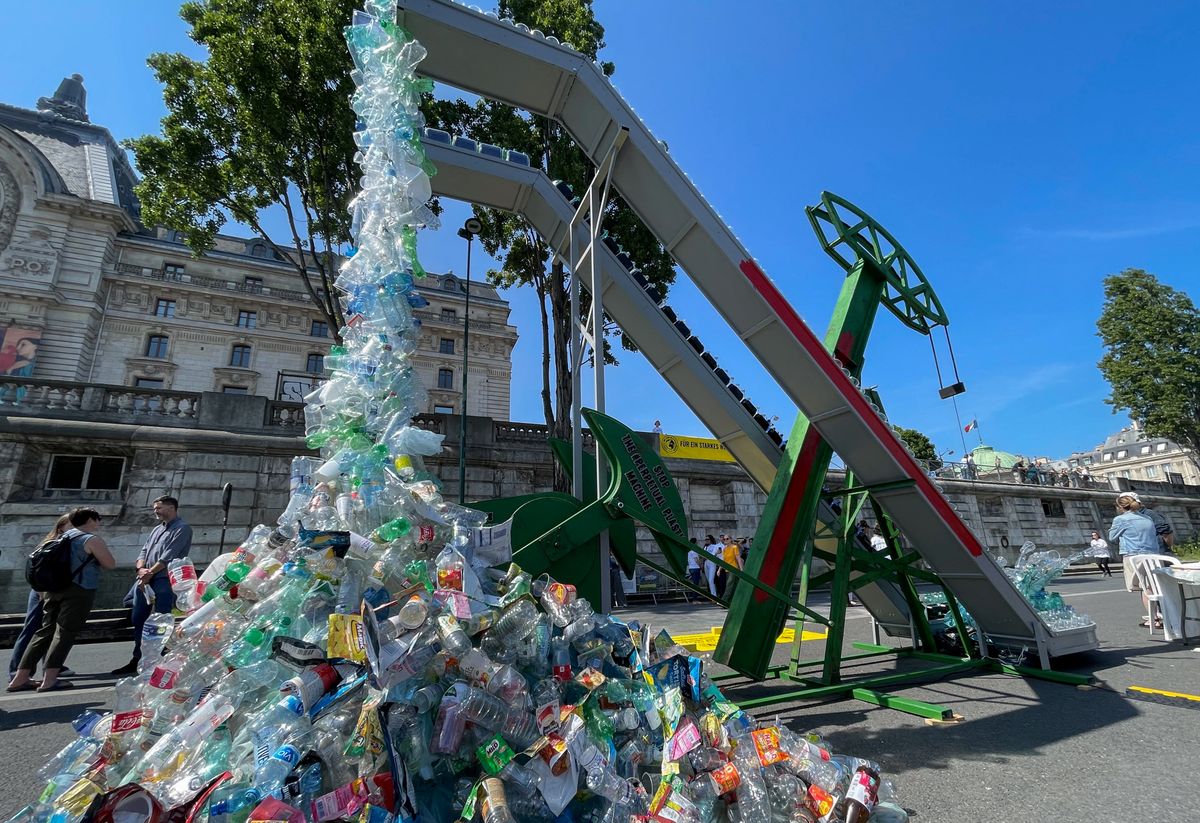An overview of the global plastic pollution problem
Apart from all of the plastic that we can see polluting the planet, plastic pollution is becoming a bigger problem because of microplastics.

A few minutes every morning is all you need.
Stay up to date on the world's Headlines and Human Stories. It's fun, it's factual, it's fluff-free.
This week, we explored the UN Environment Programme’s (UNEP) meeting in Paris to discuss global plastic pollution and possible solutions to it. Now, we want to look into the plastic pollution crisis and plastic recycling on a larger scale.
Apart from all of the plastic that we can see polluting the planet, plastic pollution is becoming a bigger problem because of microplastics. When plastic physically breaks down, it doesn’t decay the same way other materials do. Instead, it’s just breaking into smaller and smaller pieces. These pieces become microplastics, which are pieces smaller than five millimeters, and they’ve been found everywhere, including Antarctic snow and within the human body. Over time, these microplastics could do harm to the environment and to our own health.
Unfortunately, plastic recycling isn’t very effective. It costs more money to recycle plastic than to just dump it. "There is serious doubt that [recycling plastic] can ever be made viable on an economic basis," one oil industry insider wrote in 1974. But, Big Oil sold the public on the idea of recycling so it could continue to produce plastic goods.
"If the public thinks that recycling is working, then they are not going to be as concerned about the environment," Larry Thomas, former president of the Society of the Plastics Industry, told NPR.
But did you know that plastic recycling could also be contributing to the microplastic problem? “The way plastic recycling facilities operate, there’s a lot of mechanical friction and abrasion,” explains Judith Enck, a former senior Environmental Protection Agency official. All of this processing breaks plastic into smaller pieces, some of which end up in our environment.
Now, participating in these Paris talks is the “High Ambition Coalition,” which includes over 50 countries and the EU, which is pushing for “bans and restrictions” on “problematic plastics.” It’s also looking to build global baselines and targets when it comes to plastic waste.
On the other hand, the US is fighting for individual countries to set their own targets. And Saudi Arabia has been fighting for similar flexibility but doesn’t want to be obligated to set a target at all, just to establish “best practices in recycling between nations.”
So far, negotiations at these Paris talks have been slow-moving and even stalled as participants argue over voting procedures and other issues. But we’re keeping an eye on things to see if this session of negotiations might move the needle in the right direction when it comes to cutting global plastic pollution.




Comments ()